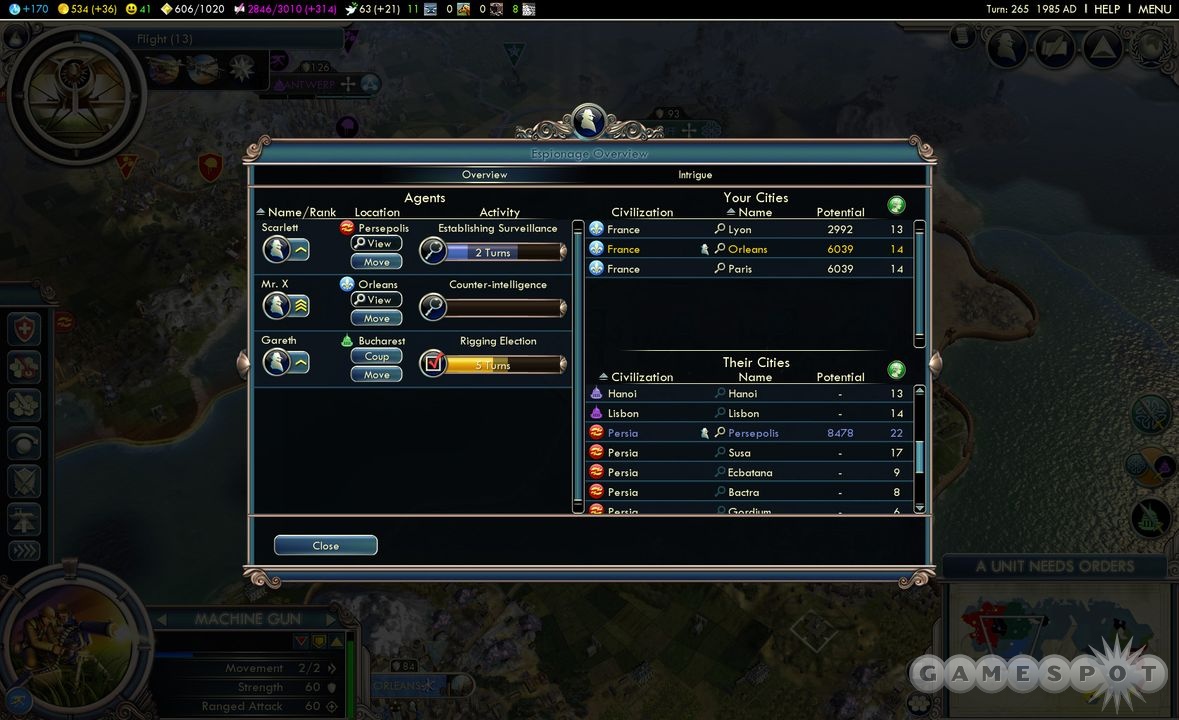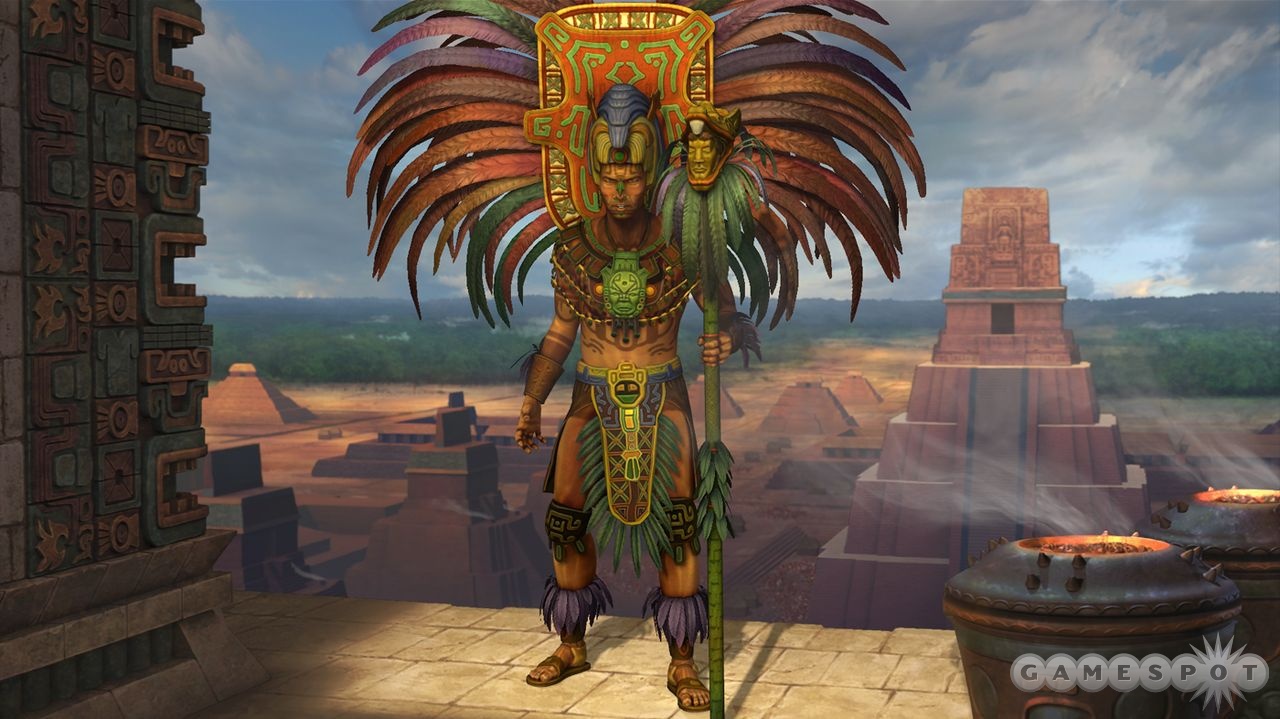Gods & Kings Brings Big Changes to Civilization V
This upcoming Civilization V expansion brings a ton of new content, including religion and espionage. Get the first details here!
An age of discovery is coming to Sid Meier's Civilization V. With its new expansion, Civilization V: Gods and Kings, developer Firaxis Games is aiming to bring back some fan-favorite features that didn't make it into Civilization V's original release back in 2010. These include a new religion system and the return of espionage. We got to chat with Ed Beach, gameplay and AI programmer, and Dennis Shirk, lead producer, about these changes.

Religion
Religion is back, but in an entirely different way. It's designed to be an extremely flexible system that can enhance all types of play styles through a series of small benefits. The cornerstone of religion is a new currency called faith. Faith is used to purchase beliefs, which are small benefits that shape your nation's religion. Civilizations starting near the coast may wish to purchase the God of the Sea belief, which grants additional production from fishing boats; while mountainous civilizations may prefer the Stone Circle belief, which generates additional faith from stone quarries.
Initially, you are only allowed to purchase one belief. As you progress, a great prophet is born in your nation that lets you purchase two more. This occurs a second time late in the game to complete your five-belief religion. In addition to purchasing beliefs, faith can be used to purchase unique buildings and units that are otherwise unavailable. Faith-generating city-states, wonders, and buildings will also be available.
Espionage
Espionage returns as well in Gods and Kings, and it mimics the options available in Sid Meier's Civilization Revolution. Spies weave a web of intrigue, and though they never appear as units on the map, there is a special panel used to assign missions. These include stealing technology, working on counterintelligence, and listing what's inside an enemy city. In single-player, spies can even report on the future military operations of AI opponents. If you learn that France is going to invade Spain, you can blow the whistle and give Spain a heads-up, which will have serious diplomatic consequences.
Unlike in Civilization: Revolution, spies are not trained by a civilization. Instead, they are awarded at certain intervals along the timeline. Should one of your spies get captured or killed, you'll have to wait a set number of turns before you get a replacement. "It's almost like an executed spy is in time-out," Beach said, adding that your new spy will start back at level one. Spies can also be used to sway the influence in city-states by rigging elections or attempting a coup.

Diplomacy
"The nature of diplomacy is going to change as you progress through the ages," explained Beach. In the early ages, religion will be one of the crucial factors in how other civilizations respond to you. Later in the game, those religious prejudices will give way to ideology preferences. When a civilization commits to the freedom, order, or autocracy culture tree, it will become the new driving force behind international relations.
City-states are also being expanded in numerous ways. "Feedback suggested city-states were dominated by who had the most gold and could offer the most gifts," Beach said. Therefore, completing city-state quests will become the most effective way to gain influence over them. City-states can now offer multiple quests at once, and some, such as "generate the most faith in 20 turns," don't require direct action from the player.
Combat
In addition to some overall pacing changes that Firaxis wasn't ready to divulge, combat in Gods and Kings is being expanded in two key areas: new World War I-era military units and several additions to naval combat. The new WWI-era units were added to give players the joys of flight earlier in the game. Units include massive, clunky tanks (referred to as Land Ships) and early fighter planes. On the naval side, the team wanted to make sea battles more dynamic. With that in mind, it built a new class of ships--melee ships--to complement the preexisting ranged ships. A new privateer unit can capture enemy ships and launch raids on costal cities.

And what would a Civilization expansion be without a few new civilizations to play with? Nine new civilizations are planned for release, including the Celts, Byzantines, Mayans, and Netherlands. When pressed, Beach noted that the Celts have the ability to gain additional faith when their cities are settled against a forest, while the Byzantines can purchase a bonus, sixth belief. Some of the original civilization abilities are also being tweaked to accommodate the changes coming in Gods and Kings. This expansion is targeted for a late spring release this year in stores or through Steam for $29.99.
Got a news tip or want to contact us directly? Email news@gamespot.com
Join the conversation